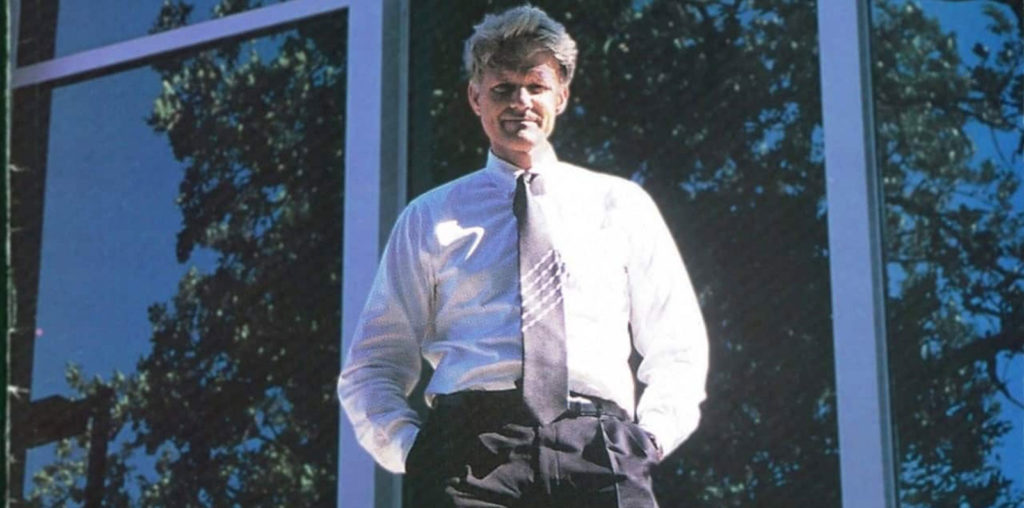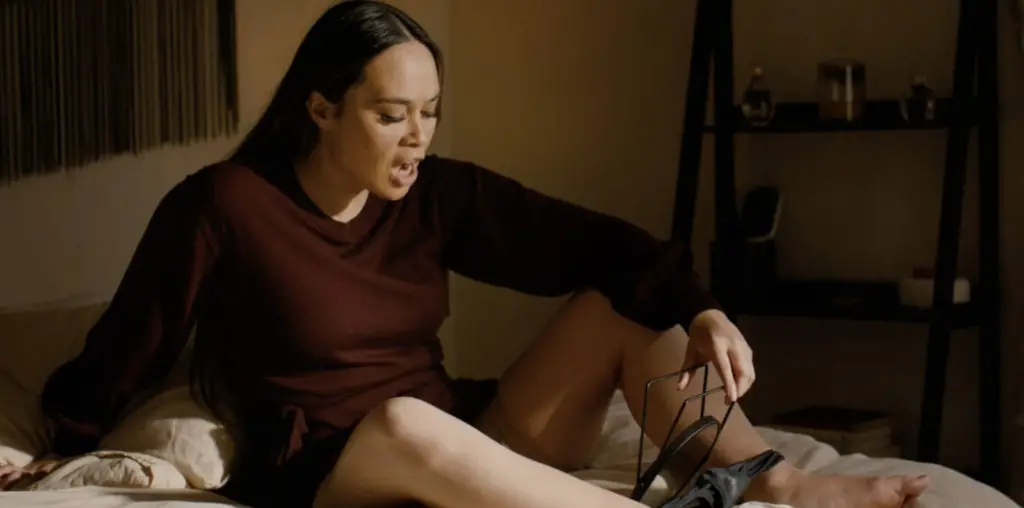
The Circus Animals has more in common with experimental cinema than a normal narrative. Playing out as a film within a mockumentary within a film, The Circus Animals employs distinct visual style changes and music cues to clue the audience in to what element of the three-tiered tale they’re currently watching.
At its simplest explanation, the film is about the filming of an independent film, from the giddy celebration of preparation to the meandering days of production to the somewhat unfortunate and bitter end. As we see snippets from the film being made, we also get a documentary-style view of the production and then, at the widest distance, we get an entirely fuller view of events that even the documentary look is missing.
Each level of the narrative has a different visual style. The film being made is in sepia tones or black and white, with popular music from the early-to-mid 1900s. It’s a decidedly anachronistic experience, as the look and sound would lead an audience to believe the film is a tale of old, while the dialogue, cars and telephones would paint a decidedly more modern picture. I’d make a statement about the lazy use of black and white or sepia to invoke nostalgia, but the director of photography in the film, when told it will be going in that direction, says all that I was thinking and more.
The documentary footage, then, is more haphazard and faded, like a handheld digital camera capturing the abandon of filming would entail. The sound gets a bit more hollow too, though not too hollow; the filmmakers behind the overall film made sure to massage the mix just enough to give the impression of a new perspective without limiting the quality of the entire film in the process. The third visual style is a far more artistic rendering, almost like a painting or chalk-rendering, depending on the scene, of all events. It is in this style that the footage feels the most pristine, despite it being the most affected.
Which leads to any number of conversations about the truth being the cleanest of all views, yet for each step back we take within the film, eventually we as the audience have to take that extra step back to view The Circus Animals as an overall project and, therefore, said truth in the art is still a manipulated artifice. If it makes a lasting impression, though, does it matter how it did it?
You may notice, now, that I’ve spent much of this review talking about the trappings of the style itself, and not really gone into the substance contained in the narrative threads, and that’s because, honestly, I didn’t always follow those narratives beyond the broadest of strokes, or my recognition of the universally rote. Filming is hard and stressful, s**t happens, unhealthy romantic attachments are made and broken… it’s not entirely original, even if the way it is expressed does give it more allure.
Additionally, while I understood the music cues in the film-in-the-documentary-in-the-film were there to help the audience follow along, after a while they became distracting, almost to the point where I began to tune them out. To that end, perhaps a more consistent musical score as opposed to soundtrack would’ve been a smoother, friendlier signaling device. Or perhaps it was supposed to become distracting on purpose. And at 109 minutes, the film does start to drag a little bit, particularly the more time we spend with that nostalgia-tinted film. Just because we’re watching a bunch of people film a movie and imbuing it with their own ideas of its greatness doesn’t mean that it actually is great.
So, to the point, is this any good? I don’t know; it feels more complicated than that, and maybe that is its greatest accomplishment: convincing me there’s more to it all than perhaps there actually is. The Emperor may indeed be naked here, and I think the film finds itself living outside of certain checkbox definitions of “good film / bad film” and falls instead into that nebulous realm of art appreciation. And once we start calling something “art,” well, all bets are off.
This film was submitted for review through our Submission for Review system. If you have a film you’d like us to see, and we aren’t already looking into it on our own, you too can utilize this service.

